The average cost of Prostate Cancer Treatment in South Korea starts from KRW 36252630 (USD 27000)
Cancer is a disease characterized by uncontrolled cell division. In its advanced stage, the cells of cancer migrate from the organ of origin to another organ and the process is known as metastasis. Metastatic cancer is difficult to treat as compared to non-metastatic cancer. Earlier the diagnosis, more effective would be the treatment with a higher chance of survival. Prostate cancer is one of the most common cancers occurring in male. The prostate is a small gland located below the bladder and surrounded by the urethra. The fluid secreted by the prostate gland is mixed with semen and is required for nutrition and protection of sperms. Prostate cancer develops when the cells of prostate gland grow uncontrollably. Although most people do not experience symptoms at the initial stage as it grows very slowly, some have an aggressive form of prostate cancer carrying the significant risk of metastasis. Such condition required immediate medical intervention and treatment. Various treatment options are available for prostate cancer including chemotherapy, radiotherapy, medications, and surgery.
South Korea, because of its high-tech devices that involve the use of super-computers, huge infrastructure, modern technological equipment, and experienced healthcare professionals is capable of successfully treating prostate cancer. Many hospitals in South Korea are performing prostate cancer treatment with a high success rate. The medical tourists visiting this country avails the accessibility of innovative treatment procedures as South Korea has been ranked 6th in the world in terms of performing clinical trials on new treatments. South Korea has been ranked one of the best innovative countries of the world and the medical technology is complemented with the high-end technologies of companies like Samsung and LG.
| Country | Cost | Local_currency |
|---|---|---|
| Czechia | USD 14500 | Czechia 329005 |
| Greece | USD 25000 | Greece 23000 |
| India | USD 6500 | India 540475 |
| Israel | USD 10000 | Israel 38000 |
| Lebanon | USD 25000 | Lebanon 375138750 |
| Malaysia | USD 9000 | Malaysia 42390 |
| Poland | USD 10000 | Poland 40400 |
| South Korea | USD 27000 | South Korea 36252630 |
| Spain | USD 14800 | Spain 13616 |
| Switzerland | USD 25000 | Switzerland 21500 |
| Thailand | USD 17000 | Thailand 606050 |
| Tunisia | USD 7500 | Tunisia 23325 |
| Turkey | USD 9000 | Turkey 271260 |
| United Arab Emirates | USD 14000 | United Arab Emirates 51380 |
| United Kingdom | USD 30000 | United Kingdom 23700 |
Treatment cost
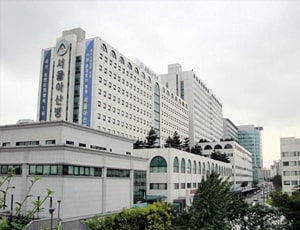
Asan Medical Centre located in Seoul, South Korea is accredited by ISO. Also listed below are some of the most prominent infrastructural details:

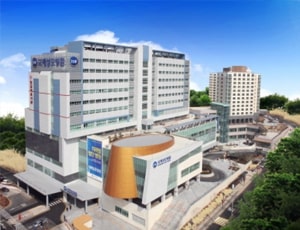
International St. Mary's Hospital located in Seoul, South Korea is accredited by JCI. Also listed below are some of the most prominent infrastructural details:
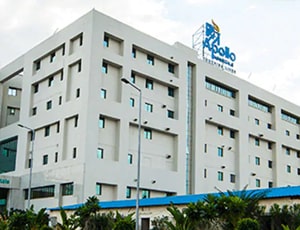
Types of Prostate Cancer Treatment in Apollo Hospital and its associated cost
| Treatment Option | Approximate Cost Range (USD) | Approximate Cost Range (INR) |
|---|---|---|
| Prostate Cancer Treatment (Overall) | 5740 - 11417 | 458226 - 905393 |
| Surgery | 3310 - 6722 | 272643 - 551831 |
| Radiation Therapy | 1692 - 4546 | 140495 - 363592 |
| Brachytherapy | 3441 - 6668 | 278556 - 557824 |
| Hormone Therapy | 550 - 1702 | 45486 - 138910 |
| Chemotherapy | 901 - 2847 | 73608 - 235702 |
| Immunotherapy | 3346 - 6167 | 279690 - 497957 |
| Targeted Therapy | 4513 - 7975 | 361378 - 649234 |
| Palliative Care | 565 - 1667 | 46204 - 136218 |
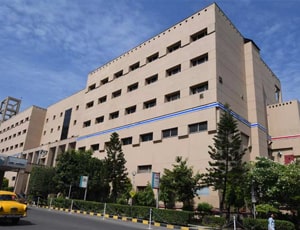
Types of Prostate Cancer Treatment in Apollo Multispecialty Hospitals and its associated cost
| Treatment Option | Approximate Cost Range (USD) | Approximate Cost Range (INR) |
|---|---|---|
| Prostate Cancer Treatment (Overall) | 5655 - 11440 | 465808 - 918990 |
| Surgery | 3443 - 6895 | 281615 - 562815 |
| Radiation Therapy | 1705 - 4559 | 137542 - 373109 |
| Brachytherapy | 3427 - 6699 | 277581 - 550341 |
| Hormone Therapy | 552 - 1696 | 46775 - 136351 |
| Chemotherapy | 899 - 2835 | 72660 - 229812 |
| Immunotherapy | 3352 - 6257 | 275802 - 511471 |
| Targeted Therapy | 4505 - 7727 | 373031 - 650910 |
| Palliative Care | 563 - 1693 | 45699 - 138638 |

Types of Prostate Cancer Treatment in Memorial Atasehir Hospital and its associated cost
| Treatment Option | Approximate Cost Range (USD) | Approximate Cost Range (TRY) |
|---|---|---|
| Prostate Cancer Treatment (Overall) | 5712 - 11035 | 166987 - 341138 |
| Surgery | 4440 - 7739 | 132877 - 237073 |
| Radiation Therapy | 2235 - 5718 | 68325 - 166283 |
| Brachytherapy | 3974 - 8976 | 118112 - 271077 |
| Hormone Therapy | 667 - 2035 | 20149 - 61195 |
| Chemotherapy | 992 - 3143 | 29942 - 95464 |
| Immunotherapy | 3907 - 7937 | 119543 - 232623 |
| Targeted Therapy | 5092 - 8948 | 153424 - 266968 |
| Palliative Care | 674 - 2024 | 20190 - 62057 |
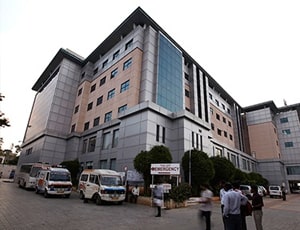
Types of Prostate Cancer Treatment in BGS Gleneagles Global Hospitals and its associated cost
| Treatment Option | Approximate Cost Range (USD) | Approximate Cost Range (INR) |
|---|---|---|
| Prostate Cancer Treatment (Overall) | 5597 - 11233 | 458925 - 919713 |
| Surgery | 3383 - 6847 | 273411 - 554777 |
| Radiation Therapy | 1671 - 4548 | 140228 - 362083 |
| Brachytherapy | 3416 - 6698 | 271027 - 550886 |
| Hormone Therapy | 565 - 1723 | 45767 - 140672 |
| Chemotherapy | 909 - 2819 | 72987 - 228038 |
| Immunotherapy | 3442 - 6256 | 276573 - 503747 |
| Targeted Therapy | 4425 - 7860 | 362224 - 651382 |
| Palliative Care | 563 - 1662 | 45952 - 139652 |
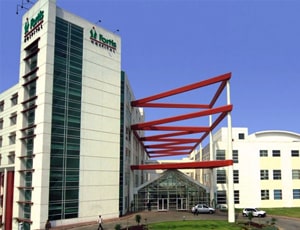
Types of Prostate Cancer Treatment in Fortis Hospital and its associated cost
| Treatment Option | Approximate Cost Range (USD) | Approximate Cost Range (INR) |
|---|---|---|
| Prostate Cancer Treatment (Overall) | 5072 - 10158 | 415761 - 832856 |
| Surgery | 3047 - 6084 | 248675 - 498574 |
| Radiation Therapy | 1522 - 4076 | 124405 - 333400 |
| Brachytherapy | 3060 - 6063 | 249678 - 500742 |
| Hormone Therapy | 506 - 1529 | 41536 - 125158 |
| Chemotherapy | 815 - 2529 | 66898 - 208896 |
| Immunotherapy | 3049 - 5583 | 249717 - 458810 |
| Targeted Therapy | 4040 - 7129 | 332410 - 581717 |
| Palliative Care | 506 - 1528 | 41522 - 124461 |
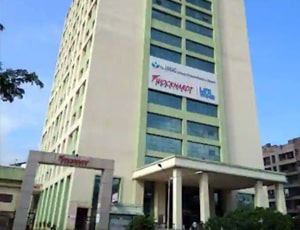
Types of Prostate Cancer Treatment in Wockhardt Hospital, Umrao and its associated cost
| Treatment Option | Approximate Cost Range (USD) | Approximate Cost Range (INR) |
|---|---|---|
| Prostate Cancer Treatment (Overall) | 5095 - 10149 | 414753 - 836134 |
| Surgery | 3055 - 6089 | 249965 - 499767 |
| Radiation Therapy | 1522 - 4051 | 124999 - 333593 |
| Brachytherapy | 3051 - 6099 | 249088 - 500064 |
| Hormone Therapy | 507 - 1521 | 41673 - 124728 |
| Chemotherapy | 815 - 2543 | 66263 - 208352 |
| Immunotherapy | 3043 - 5608 | 250647 - 458869 |
| Targeted Therapy | 4072 - 7121 | 331453 - 584958 |
| Palliative Care | 510 - 1517 | 41609 - 124260 |

Types of Prostate Cancer Treatment in Indraprastha Apollo Hospital and its associated cost
| Treatment Option | Approximate Cost Range (USD) | Approximate Cost Range (INR) |
|---|---|---|
| Prostate Cancer Treatment (Overall) | 5737 - 11421 | 458804 - 934221 |
| Surgery | 3339 - 6681 | 270771 - 560271 |
| Radiation Therapy | 1698 - 4597 | 137909 - 365150 |
| Brachytherapy | 3320 - 6624 | 277394 - 562520 |
| Hormone Therapy | 565 - 1691 | 45870 - 137647 |
| Chemotherapy | 886 - 2828 | 72272 - 231427 |
| Immunotherapy | 3440 - 6133 | 281322 - 516000 |
| Targeted Therapy | 4451 - 7701 | 370819 - 642219 |
| Palliative Care | 573 - 1656 | 46267 - 141285 |
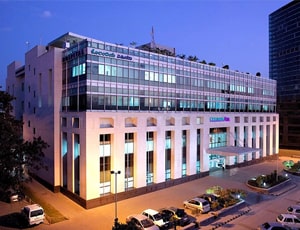
Types of Prostate Cancer Treatment in Manipal Hospital, Yeshwantpur and its associated cost
| Treatment Option | Approximate Cost Range (USD) | Approximate Cost Range (INR) |
|---|---|---|
| Prostate Cancer Treatment (Overall) | 5624 - 11216 | 454336 - 929491 |
| Surgery | 3404 - 6751 | 279865 - 561538 |
| Radiation Therapy | 1659 - 4478 | 138156 - 373258 |
| Brachytherapy | 3378 - 6678 | 278103 - 549645 |
| Hormone Therapy | 570 - 1659 | 45868 - 139386 |
| Chemotherapy | 918 - 2836 | 72568 - 230736 |
| Immunotherapy | 3416 - 6283 | 274181 - 513007 |
| Targeted Therapy | 4428 - 7724 | 361282 - 637088 |
| Palliative Care | 554 - 1709 | 45416 - 139477 |
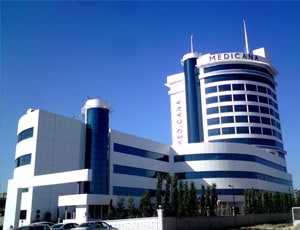
Types of Prostate Cancer Treatment in Medicana Konya Hospital and its associated cost
| Treatment Option | Approximate Cost Range (USD) | Approximate Cost Range (TRY) |
|---|---|---|
| Prostate Cancer Treatment (Overall) | 5501 - 11491 | 167993 - 334314 |
| Surgery | 4431 - 7996 | 134585 - 241550 |
| Radiation Therapy | 2202 - 5650 | 66881 - 172577 |
| Brachytherapy | 3912 - 8923 | 119732 - 265647 |
| Hormone Therapy | 670 - 2002 | 20260 - 60570 |
| Chemotherapy | 1020 - 3099 | 30460 - 96233 |
| Immunotherapy | 3913 - 7804 | 116441 - 235586 |
| Targeted Therapy | 5007 - 9107 | 153265 - 271766 |
| Palliative Care | 672 - 2068 | 20535 - 62287 |
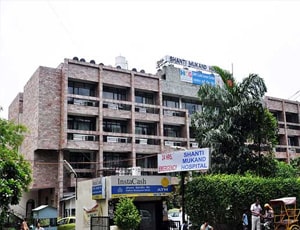
Types of Prostate Cancer Treatment in Shanti Mukand Hospital and its associated cost
| Treatment Option | Approximate Cost Range (USD) | Approximate Cost Range (INR) |
|---|---|---|
| Prostate Cancer Treatment (Overall) | 5075 - 10154 | 417942 - 832121 |
| Surgery | 3036 - 6095 | 250205 - 497973 |
| Radiation Therapy | 1518 - 4047 | 124828 - 334524 |
| Brachytherapy | 3032 - 6103 | 250163 - 497898 |
| Hormone Therapy | 509 - 1520 | 41778 - 124346 |
| Chemotherapy | 810 - 2546 | 66429 - 208540 |
| Immunotherapy | 3051 - 5594 | 249697 - 457885 |
| Targeted Therapy | 4054 - 7079 | 331785 - 584432 |
| Palliative Care | 509 - 1520 | 41724 - 124867 |
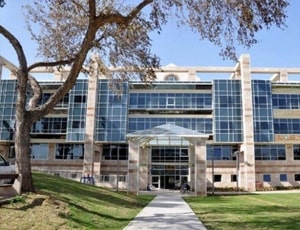
Kaplan Medical Centre located in Rehovot, Israel is accredited by JCI. Also listed below are some of the most prominent infrastructural details:
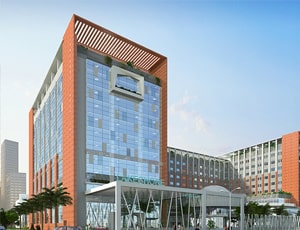
Types of Prostate Cancer Treatment in VPS Lakeshore Hospital and its associated cost
| Treatment Option | Approximate Cost Range (USD) | Approximate Cost Range (INR) |
|---|---|---|
| Prostate Cancer Treatment (Overall) | 5084 - 10190 | 414259 - 829523 |
| Surgery | 3043 - 6106 | 250139 - 499622 |
| Radiation Therapy | 1530 - 4066 | 124328 - 332717 |
| Brachytherapy | 3046 - 6087 | 249520 - 498413 |
| Hormone Therapy | 508 - 1529 | 41727 - 124503 |
| Chemotherapy | 814 - 2537 | 66713 - 208983 |
| Immunotherapy | 3054 - 5578 | 249787 - 455979 |
| Targeted Therapy | 4044 - 7072 | 332724 - 584091 |
| Palliative Care | 507 - 1522 | 41497 - 124975 |
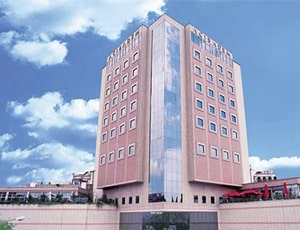
Types of Prostate Cancer Treatment in Acibadem Bakirkoy Hospital and its associated cost
| Treatment Option | Approximate Cost Range (USD) | Approximate Cost Range (TRY) |
|---|---|---|
| Prostate Cancer Treatment (Overall) | 5638 - 11428 | 169903 - 336016 |
| Surgery | 4544 - 8007 | 138422 - 236785 |
| Radiation Therapy | 2292 - 5501 | 66442 - 167378 |
| Brachytherapy | 3954 - 8842 | 118859 - 268782 |
| Hormone Therapy | 688 - 2054 | 20065 - 61983 |
| Chemotherapy | 996 - 3215 | 30205 - 96923 |
| Immunotherapy | 3979 - 7829 | 119200 - 235842 |
| Targeted Therapy | 5050 - 9152 | 154598 - 265655 |
| Palliative Care | 661 - 2041 | 20016 - 60602 |
The prostate is a gland in the male reproductive system, which makes fluid that forms an essential part of the semen. Prostate cancer starts when cells of the prostate glands begin to grow abnormally
Prostate cancer is one of the leading cancers in men above the age of 60. In most of the cases, it is slow growing and may even go undetected and do not cause any problem. However, in some cases, it could be aggressive and cancer cells can spread to other parts of the body (metastatic prostate cancer)
Prostate cancer is a very slow growing disease and starts with tiny alterations in the shape and size of the prostate gland cells. The prostate cancer risk increases with age and it is rarely observed before the age of 40. That is the main reason why many men die of old age, without ever knowing that they had prostate cancer.
There is no direct prostate cancer causes. However, there are some factors that can increase the risk of prostate cancer, including the following:
Usually, prostate cancer means the cancer of prostate gland cells called prostatic intraepithelial neoplasia (PIN). Almost all the prostate cancers are adenocarcinomas, but there are some other types of prostate cancer as well, including the following:
Based on how abnormal the patterns of cancer cells look, prostate cancers are classified as:
There are no warning signs of prostate cancer. The symptoms of metastatic prostate cancer usually appear first in the region that the cancer cells have invaded.
After cancer causes the prostate gland to swell, the following signs of prostate cancer may be experienced:
In prostate cancer stages, the following symptoms may also be there:
Treatment for prostate cancer can be divided into early stage and advanced stage. Your doctor will choose the best suitable treatment for you, depending on the stage and classification of prostate cancer, your age, and overall health status. Although, your feelings, expected lifespan, and your opinion will play a major role in choosing the right kind of treatment.
The most common treatment options for prostate cancer include the following:
Watchful waiting or active surveillance
No immediate treatment is carried out, but the patient is followed up at regular intervals to see the progression of the disease. This method is used in elderly patients with short life expectancy and in case of an early disease.
The main type of prostate surgery is called radical prostatectomy. In this, cancerous tissues are removed by a surgical operation. A long cut in the abdomen is needed in this surgery, depending on the extent and stage of cancer.
However, a keyhole surgery for prostate cancer using a laparoscope or robot is also available. These treatments have good success rates but may result in certain long-term side effects such as sexual dysfunction, narrowing of the urethra, and urinary incontinence.
High-intensity beams are used in this treatment to destroy the cancer cells in the prostate. Radiotherapy can be administered via needles implanted into the prostate, under ultrasound guidance or as an external beam. Radiotherapy can be used after surgery if the resection of cancer tissue has not been completed.
There are two types of radiotherapy for prostate cancer:
In this, the radiation beams are shaped so that the region where they overlap is as close to the same shape as the organ that requires treatment. It minimizes healthy tissue exposure to radiation.
In this, the beams with variable intensity are used. It is an advanced form of conformal radiotherapy. It is usually delivered with the help of a computer-controlled linear accelerator.
Hormone therapy involves the use of medications that suppress testosterone levels. They are used as primary treatment and in advanced cases or Stage 4 prostate cancer.
Chemotherapy is a kind of advance drug treatment in which strong medications are used to kill the cancer cells and prevent it from spreading. It is used when the prostate cancer is not controlled by hormonal treatment. Chemotherapy is selected only for treatment of Stage 4 prostate cancer and when the patient can cope with it.
This treatment uses extremely cold temperatures to freeze and destroy cancer tissues in the prostate. Cryotherapy is the best option for treating recurrent prostate cancer, especially if initial radiation therapy did not kill enough cancer cells. The surgeon inserts an ultra-thin metal probe or needle into the prostate gland, from which a freezing liquid, such as liquid nitrogen or more commonly, argon gas, is infused into the prostate gland.
Some treatments such as radiofrequency and high intensity focused ultrasound (HIFU) are used to treat early prostate cancer or when the patient is not fit for a major surgery.
Ask your healthcare adviser for the best multiple options and choose the one that meets your expectations
The cost of Prostate Cancer Treatment in South Korea starts from USD$ 27000. Prostate Cancer Treatment in South Korea is available across many hospitals in different states.
Prostate Cancer Treatment package cost in South Korea has different inclusions and exclusions. The Prostate Cancer Treatment package cost usually includes all the expenses related to pre and post surgery expenses of the patient. The Prostate Cancer Treatment package in South Korea includes the fees of the surgeon, hospitalization and anesthesia as well. A prolonged hospital stay due to delayed recovery, new diagnosis and complications after surgery may increase the cost of Prostate Cancer Treatment in South Korea.
Prostate Cancer Treatment in South Korea is offered by multiple hospitals across the country. For quick reference, the following are some of the leading hospitals for Prostate Cancer Treatment in South Korea:
After Prostate Cancer Treatment in South Korea, the patient is supposed to stay in guest house for another 21 days. This duration of stay is recommended to complete all the necessary follow-ups and control tests to ensure that the surgery was successful.
While South Korea is considered to be one of the best destinations for Prostate Cancer Treatment owing to the standard of Hospitals, and expertise of doctors; there are a select few destinations which provide comparable quality of healthcare for this procedure. Some of such countries are:
Apart from the cost of Prostate Cancer Treatment, the patient is also required to pay additionally for daily meals and guest house accommodation. These charges may vary starting from USD$ 40 per person.
Prostate Cancer Treatment in South Korea is offered in almost all metropolitan cities, including the following:
After the Prostate Cancer Treatment takes place, the average duration of stay at the hospital is about 4 days. During the recovery, the patient is carefully monitored and control tests are performed to see that everything is okay. If required, physiotherapy sessions are also planned during recovery in hospital.
There are about 2 Prostate Cancer Treatment hospitals in South Korea that are best known for their services. These hospitals have the required expertise as well as infrastructure available to handly patients who need Prostate Cancer Treatment
Like other cancers, the specific cause of Prostate cancer is not known, Due to unknown reasons, the mutation in the DNA of the cells takes place leading to uncontrolled growth. However, some of the factors significantly increase the risk of prostate cancer. These factors are:
1) Genetics: Presence of abnormal genes increases the risk of cancer. Genes have information stored in them. Mutation deletes some of the information leading to abnormal behavior by the cells.
2) Exposure to radiations or chemicals: Prolong exposure to radiations or chemicals increases the risk of cancer.
3) Inflammation in Prostate: Prolonged Prostatitis, inflammation of the prostate gland, increases the risk of Prostate cancer.
4) Altered level of male hormone: Increase in the level of testosterone increases the growth of the prostate gland and overgrowth increases the risk of cancer. 5) Age: As age increases, the chances of developing prostate cancer increases.
South Korea, in the healthcare sector, is one of the most advanced countries in the world. The diagnosis and treatment of diseases are done though ultra-modern technologies, with high accuracy and precision. Various types of surgeries complimented with minimally invasive procedures, are available in South Korea for treating the patient suffering from prostate cancer:
a) Open Radical Prostatectomy
b) Laparoscopic Radical Prostatectomy
c) Robot-assisted Radical Prostatectomy
Radical prostatectomy is further subdivided into Radical retropubic prostatectomy and Radical perineal prostatectomy.
1) Gangnam Severance Hospital, Seoul
2) Seoul National University Hospital, Seoul
3) Samsung Medical Center, Seoul
4) Gachon University Gil Medical Center, Incheon
5) Asan Medical Center, Seoul
6) Seoul St. Mary's Hospital, Seoul
Following are some of the top Prostate Cancer Surgeons in South Korea:
1) Dr. Eunsik Lee, Seoul National University Hospital, Seoul
2) Dr. Hyeon Hoe Kim, Seoul National University Hospital, Seoul
3) Dr. Koon Ho Rha, Gangnam Severance Hospital, Seoul
4) Dr. Ji Youl Lee, Seoul St. Mary's Hospital, Seoul
5) Dr. Hong Sung Hoo, Seoul St. Mary's Hospital, Seoul
6) Dr. Hanjong Ahn, Asan Medical Center, Seoul
7) Dr. Seong Soo Jeon, Samsung Medical Center, Seoul